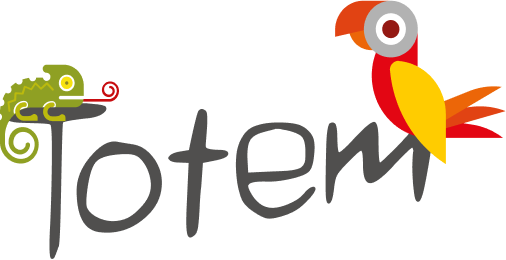In our fast-paced and demanding world, it is crucial that individuals and organisations recognise the importance of mental health and foster an environment that supports the well-being of their employees. As mental health initiatives gain traction, one aspect is often underestimated: the impact of positive relationships within teams. In this article, we explore the profound influence of team unity on personal and professional growth, highlighting the value of Totem, the feel-good game, in strengthening these connections.
The power of positive relationships
Positive relationships are the cornerstone of creating a harmonious work environment, fostering trust, collaboration and empathy among team members. When individuals feel part of a group and benefit from peer support, they are more likely to experience increased job satisfaction, motivation and overall well-being. These benefits extend beyond the workplace, impacting personal lives and improving overall quality of life.
Improved mental health and well-being
The impact of positive relationships on mental health is undeniable. Research has consistently shown that people who have supportive relationships at work are more resilient to stress, experience reduced rates of burnout and are better prepared to handle difficult situations. By prioritising team unity and investing in meaningful relationships, organisations can create a supportive framework that protects the mental health of their employees.
Improved collaboration and productivity
Positive relationships also play a vital role in improving collaboration and productivity within teams. When team members feel comfortable and respected, they are more likely to openly communicate ideas, share knowledge and collaborate effectively. This synergy leads to improved problem-solving capabilities, innovation and overall team performance. By fostering positive relationships, organisations unlock the potential for personal and professional growth.
Introducing Totem: the well-being game
Totem is an initiative designed to promote team unity and strengthen bonds between individuals. This unique wellness game provides a platform for team members to connect on a deeper level, encouraging them to engage in meaningful conversations, develop empathy and understand each other better. Totem promotes positive relationships, thereby strengthening mental health and overall team productivity.
The value of Totem in strengthening connections
Totem acts as a catalyst for building trust and empathy within teams. By facilitating discussions on sensitive topics in a safe, non-judgmental environment, this encourages team members to share their experiences and what they appreciate about one another. This vulnerability creates a strong foundation for understanding and acceptance, fostering a supportive environment where individuals feel valued, recognised and encouraged.
Additionally, Totem promotes active listening and effective communication skills, allowing team members to truly understand each other's perspectives. As a result, individuals communicate in a friendly manner and collaboration becomes easier. By fostering positive relationships and improving communication, Totem contributes to healthier team dynamics and unlocks the full potential of each individual.
As organisations strive to prioritise mental health and well-being, it is imperative to recognise the profound impact of boosting positive relationships for enhanced personal and professional growth. By adopting initiatives such as Totem, organisations can foster a culture that values team unity, empathy and open communication. Together, we can create work environments that unlock the potential of positive relationships, allowing individuals to thrive both personally and professionally. Let Totem be your guide to strengthening connections, fostering well-being and cultivating a healthier, happier workforce.



